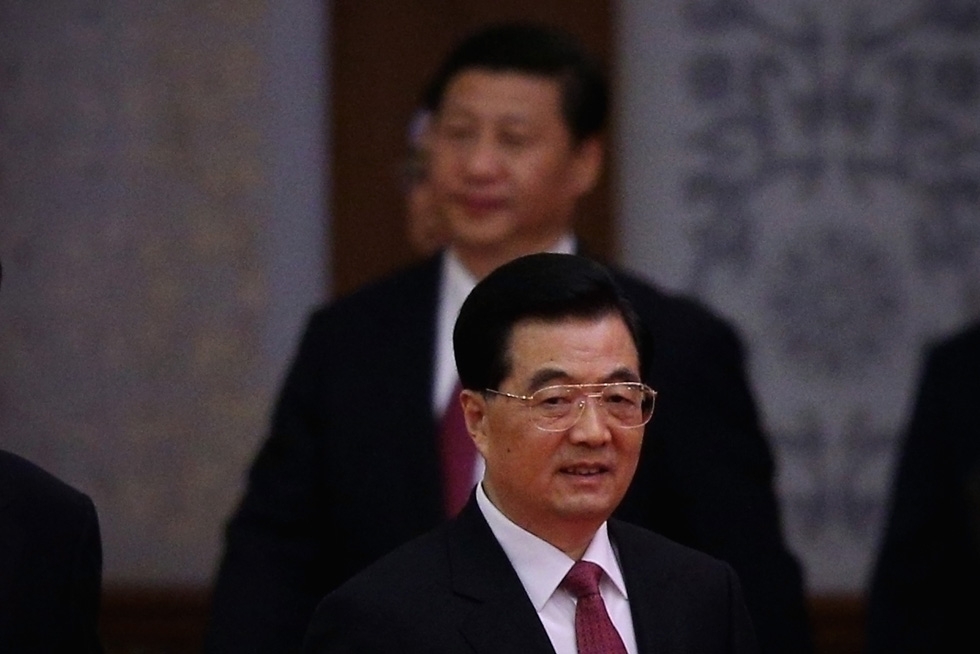Video: Why We Know So Little About China's Leadership Change and Its Next Leader

As the United States votes for its next president, China, too, is preparing for a leadership change — although much less is known about that process, which begins Thursday with the start of the 18th National Congress of the Communist Party of China. In an attempt to shed light on this opaque political exercise, Asia Society (with the help of our friends at ChinaFile) has conducted a series of studio interviews with a variety of China watchers.
Today, we launch the series with two clips from Orville Schell, Arthur Ross Director of Asia Society's Center on U.S.-China Relations.
"I think for most Westerners who are used to having political processes be relatively open, and if not actually exposed to electoral judgment, the Chinese process, which is very claustrophobic and done within a black box, seems very enigmatic," Schell said, "and indeed it does to the Chinese as well."
Schell also discusses how little we know about the man expected to be named China's next leader, Xi Jinping.
"You can be with him, look at him, hear him talk, and still not really know what is going on inside his head," said Schell, who spent time with Xi during his visit to the United States earlier this year. "He's a smart man, an able man, but he's a man who has learned that if you want to rise up in the Chinese leadership, one of the best ways to do that, particularly in public, is to keep your peace. Don't reveal too much."
Complete transcripts of the two videos embedded in this post can be found below in italics. Be on the lookout for more Asia Society interviews on China's leadership transition in the coming days.
Peering Inside the 'Black Box'
Well the 18th Party Congress starts November 8th and will go for approximately a week and it will designate who will assume the top positions, particularly the seven positions on the Standing Committee of the Politburo. But it will also precipitate a rearrangement of the whole board all over China. All the provincial party secretaries, governors, people of every stripe will be moving around, and it's a period of immense tension, uncertainty, and a time when people are loathe to make bold decisions. It's a wait and see time.
Well I think for most Westerners who are used to having political processes be relatively open, and if not actually exposed to electoral judgment, the Chinese process, which is very claustrophobic and done within a black box, seems very enigmatic, and indeed it does to the Chinese as well. This I think it's a combination of a traditional way of doing things where things were done in literally the Forbidden City behind walls, and then they are revealed. And the Leninists sort of Chinese communist system is very similar. Things are hashed out behind closed doors, leadership battles go on, and then when they arrive at a new order, it is revealed in a photograph. And right now there's a very sort of intense struggle going on between various factions, made all the more I think difficult by the Bo Xilai scandal, where a number of people, certain elements, factions, have been more or less supportive of him in the past, and the question is what to do about them. And this is being slugged out now behind the curtain. And it's quite intense, and we don't quite know what the outcome will be.
Who is Xi Jinping?
It's a highly secretive process and the cost of revealing what goes on behind the screen is high. And so people don't do it. But we can know what forces are at work in society, and what issues are bedeviling people. And it's also a curious time where it doesn't behoove a potential leader to be too outspoken about their intentions or even what they believe in, because once they do that they become marked in a way to which things stick to them in a fashion that often impedes their progress forward. So that's why we have leaders such as Xi Jinping and we don't know a lot about him. You can be with him, look at him, hear him talk, and still not really know what is going on inside his head. And this is because in actuality, the way the leadership construct is put together now, it doesn't really matter so much what's going on inside the big leader's head, what matters is what the collectivity can agree on and decide on.
Well we know he's the son of a revolutionary hero. We know that he had trouble in the Cultural Revolution. We know that he's a man of some modest and a certain kind of simplicity, which has served him well. And we know sort of, more or less, that he's friendly to people in Shanghai, he was leader there. We know he was in Fujian province, Zhejiang province. We know a few things like that. He's a smart man, an able man, but he's a man who has learned that if you want to rise up in the Chinese leadership, one of the best ways to do that, particularly in public, is to keep your peace. Don't reveal too much. And when he came to the United States, at Joe Biden's invitation, I followed him around the country, and I have to say, he revealed very little.
But, that's the nature of the game now. The less you reveal, the better off you will probably be, and you might actually be a better leader in the consensual world, in which people now have to operate. The era of the big leader, Mao Zedong, Chiang Kai-shek, Deng Xiaoping, it's over.

